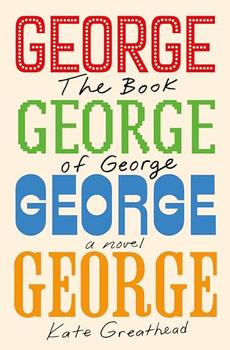Summary | Excerpt | Reviews | Beyond the Book | Readalikes | Genres & Themes | Author Bio

Face-to-Face with Modern-Day Slavery
by E. Benjamin Skinner
"The egg is back! The egg is back!" Aristide's supporters shouted upon his return to the presidential palace. The proverb had been disproved and the chicken had indeed taken back the egg; but the egg turned out to be rotten. The Aristide restored by the multinational force was not the same Aristide elected by the people. Cowed by the demands of international financial institutions, he abandoned his programs for the poor. Terrified by the prospect of another paroxysmal coup, he employed the thug tactics of the Duvaliers.
Aristide proved adept at paying lip service to the restavèks. Two months after the restoration, he ratified the UN Convention on the Rights of the Child, and he later acknowledged that the restavèk system is "one of the cancers on our social body in Haiti that keep democracy from growing." But in practice, Aristide did little to free the slaves, save for proposing more meetings, and unveiling, with great pomp, a hot line to report restavèk abuses. The hot line was normally unmanned, and currently boasts a perpetual busy signal.
At the time, the United States was undergoing a seismic political shift of its own. A week after Crane's comment in the fall of 1994, Newt Gingrich's GOP colleagues won control of Congress and consolidated their power over the next five elections. In the second Bush administration, modern slavery mattered, and Aristide was the thug who perpetuated it in Haiti.
Shortly before George W. Bush took office, a soft-spoken man named Jean-Robert Cadet stirred American consciences about Haitian slavery. Cadet turned what had been a biographical letter to his newborn son into an elegant and painful book chronicling his years as a restavèk. He revealed in detail the torture and sexual abuse that he endured from his earliest memories until his mistress took him to the United States. On September 28, 2000, Cadet offered graphic testimony before Jesse Helms and the Senate Foreign Relations Committee's hearing on modern slavery: "I believe it is the moral obligation of this great nation to help Haiti solve the restavèk problem," he concluded.
Since the first Bush administration, the State Department had included reports of child slavery in its yearly assessment of the human rights situation in Haiti. Now, State took a harder look. In 2003, his first year at the helm of the American antislavery office, John Miller dropped Aristide's government to Tier Three of the Trafficking in Persons Report -- a ranking that could trigger sanctions. In an eleventh-hour move, the Haitian Senate proposed an amendment to the constitution to outlaw the restavèk system.
Embassy officials in Port-au-Prince enlisted Roger Noriega, the new Assistant Secretary for Western Hemisphere Affairs, to convince Secretary of State Colin Powell to upgrade Haiti. The embassy argued that if the United States imposed sanctions on Haiti, a country dependent on aid for all public works, the nation would veer sharply toward becoming a full-on failed state. Swayed by these arguments and the importance of Haitian cooperation in stemming the flow of immigrants and narcotics, Secretary Powell recommended upgrading Haiti to Tier Two, where it would not face sanctions.
Shortly after Bill Nathan was born in 1984, his father died of malaria. To honor him, Bill's mother, Teanna, gave the baby an American-sounding name. His father was Haitian, but had worked for an American cargo company based in coastal Cap Haitien. Widowed at forty, Teanna became, like 60 percent of Haitian mothers, the sole supporter of her children. With Bill and his three-year-old sister Shayla, she headed south in search of work, settling in Hinche, a town in the central plateau of the country. There she met Sister Caroline, an American nun who helped her find a small home. Teanna earned money by doing laundry and cooking food for wealthier neighbors. She didn't make much, but it was enough to feed her children rice, beans, and, when she could, chicken.
Copyright © 2008 by E. Benjamin Skinner




It is among the commonplaces of education that we often first cut off the living root and then try to replace its ...
Click Here to find out who said this, as well as discovering other famous literary quotes!
Your guide toexceptional books
BookBrowse seeks out and recommends the best in contemporary fiction and nonfiction—books that not only engage and entertain but also deepen our understanding of ourselves and the world around us.